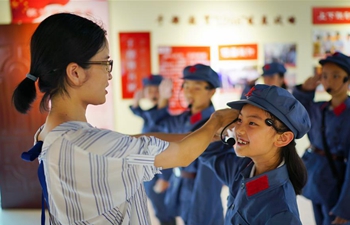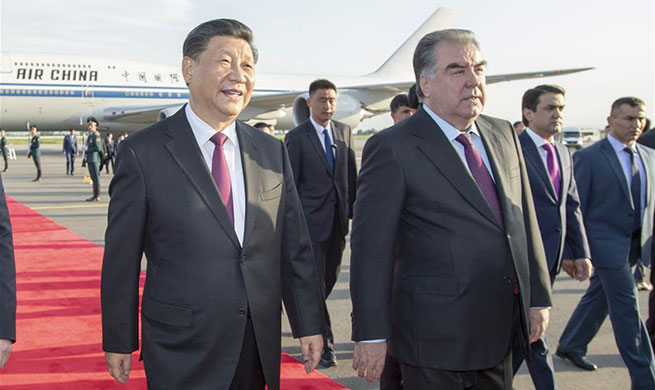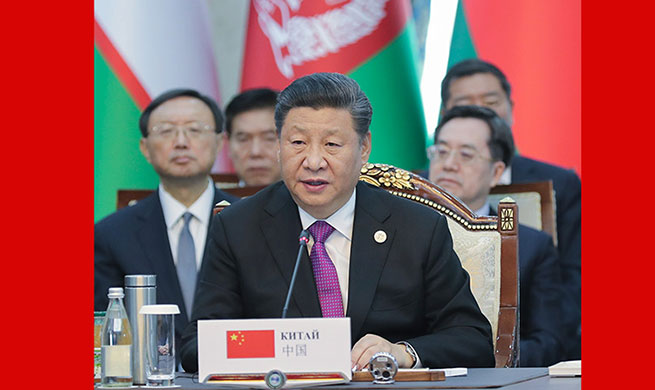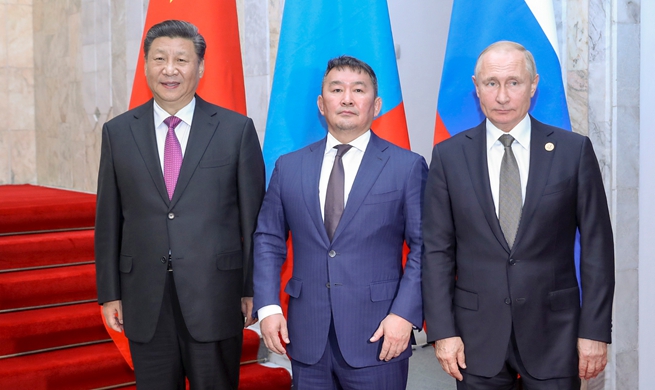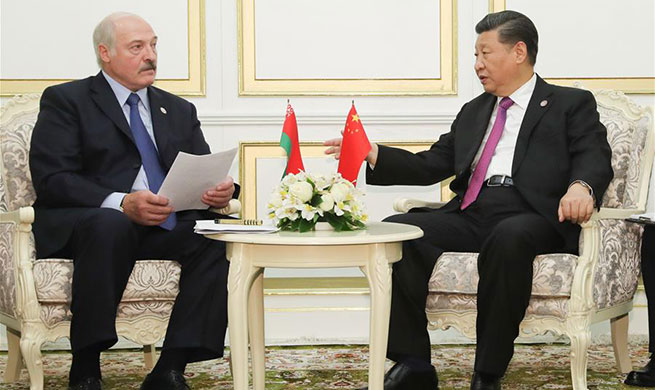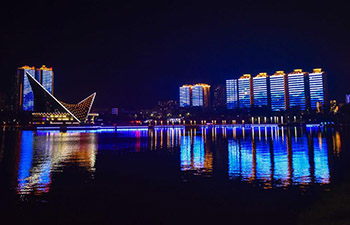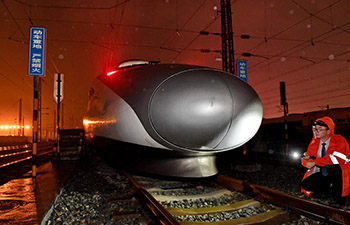TEHRAN, June 14 (Xinhua) -- Japanese leader Shinzo Abe recently visited Iran, becoming the first Japanese prime minister to visit the Islamic republic since 1979.
The rare visit by the Japanese prime minister to Iran is aimed at achieving peace between Tehran and Washington amid their escalating friction that has worried the players in the region and beyond.
The impetus behind Japan's diplomatic move is to protect Tokyo's regional interests and above all its energy imports from the region.
The most important part of Abe's Iranian trip was his scheduled meeting with Iranian Supreme Leader Ayatollah Ali Khamenei on Thursday.
Abe had born a message from U.S. President Donald Trump to Khamenei, but the Iranian leader rebuffed it.
Khamenei said that he "does not trust America" and he does not consider the U.S. president "worthy" of a message or reply from Iran.
The anti-U.S. rhetoric had also been echoed by the Iranian President Hassan Rouhani in the Wednesday meeting with Abe.
Alireza Namvar Haghighi, the Iranian Political Science scholar at the University of Toronto, said that "all-in-all Abe's meetings (with the Iranian leaders) are considered positive, which keeps opening the possibility of diplomacy for a number of reasons."
The fact that Abe was accepted to visit Iran and bring in the message of Trump, "means that Iran has accepted to enter an indirect negotiation" with the United States, said Namvar Haghighi.
Abe had a plan to visit Iran 10 months ago, but a meeting with the Iranian supreme leader was not included in his program at that time. Therefore, Abe's visit to Iran was cancelled at that time, he said, adding that "now that Abe was accepted (to meet with Iranian supreme leader), it has positive outcome."
On Thursday, Khamenei appreciated Abe's efforts for easing tensions, saying that "we do not doubt about your sincerity and goodwill."
The point about such remarks is that "this friendship and the role of Japan can be continued," said Namvar Haghighi.
Perhaps, the most important part of the meeting was Khamenei's reiteration of Iran's dismissal of the nuclear arms to alleviate relative concerns.
Iran is not after nuclear weapons, "but if we were after building nuclear weapons, the United States could not do anything about it," Khamenei said on Thursday.
Likewise, Abe said following the meeting with the Iranian leader that Khamenei assured him that Iran has no intention to make, hold or use nuclear weapons.
Although he was talking to Abe, "I think Khamenei sent a message" to President Trump about Iran's nuclear program, Namvar Haghighi said.
Through the Iranian leader's remarks, it is derived that "if you (Trump) want to negotiate only about the nuclear issue, we do not have problem. We can provide enough guarantees to ensure you (about it)," he said.
Whether this visit has been "successful" or not, the remarks of the Iranian and the U.S. officials will show in the following days, the Iranian expert added.









